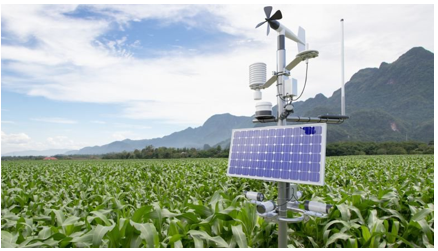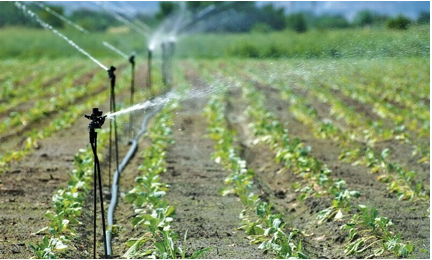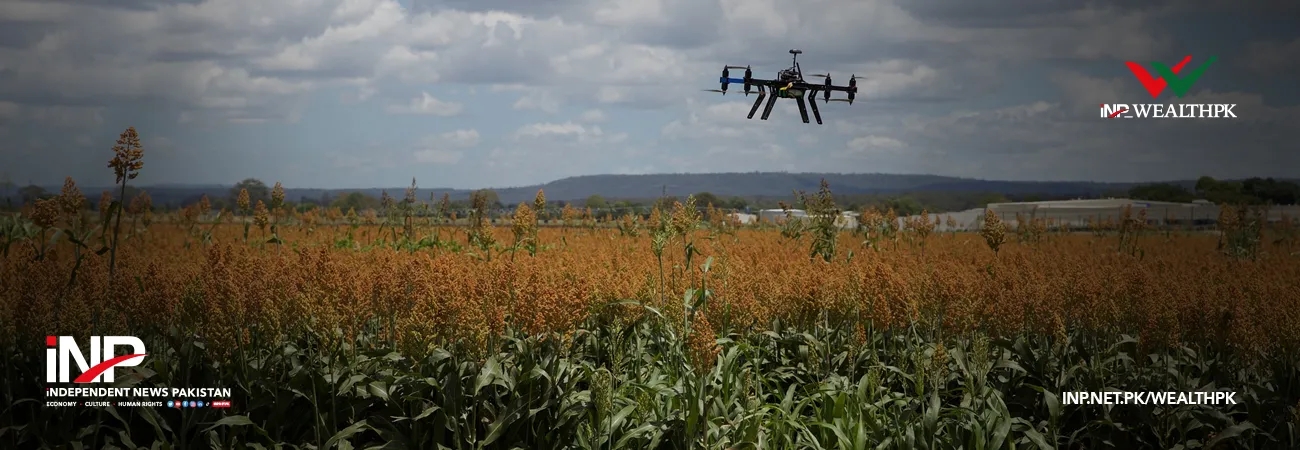INP-WealthPk
Ahmed Khan Malik
Introduction of climate-smart technologies will help uplift Sindh’s agriculture sector, which has suffered greatly due to changing climate patterns over the last two decades, reports WealthPK.

To mitigate climate-related challenges, agricultural research institutions in Sindh are introducing technologies designed to improve food security and productivity. The recent years witnessed devastating impacts of climate change in the province in the form of floods and droughts, severely compromising food security as well as displacing the people and destroying their properties and other belongings.
“The aim is to achieve higher yields using fewer resources, with innovations like climate-resilient irrigation methods that can save 25-30% of water used for wheat cultivation and increase yields by 10-15%,” Mohsin Lashari, Director Research, Sindh Agriculture Department, told WealthPK.

He described the introduction of climate-smart technologies as a significant move to bolster the agricultural sector against the mounting challenges of climate change and said the initiative aims to enhance food security, optimize resource utilization, and promote sustainable farming practices across the province.
Speaking about climate vulnerabilities, he said, despite contributing minimally to global carbon emissions, Pakistan faces severe climate-related adversities, with its agriculture sector, particularly in Sindh, bearing the brunt. Frequent floods, prolonged droughts, glacial melts, and erratic rainfall patterns have disrupted the traditional farming cycles, threatening livelihoods and food production.
Talking about the key components of the climate-smart technologies initiative, Lashari said this encompasses several innovative strategies designed to mitigate climate impacts and improve agricultural productivity. He said water-efficient irrigation techniques will be introduced by implementing climate-resilient irrigation methods capable of reducing water usage for wheat cultivation by 25–30%, while boosting yields by 10–15%.
He said double-row planting techniques will be adopted to decrease seed consumption by up to 60%, enhancing efficiency and reducing input costs. Drought-resistant crops will be promoted under this initiative. “Promoting low-water crops, such as mustard, offering viable alternatives during water scarcity will be a key component,” he noted.
Lashari told WealthPK that the introduction of tunnel farming for vegetables and experimental saffron cultivation will diversify crop options and increase resilience. Creation of a state-of-the-art Maximum Residue Level (MRL) laboratory to combat Panama disease will be part of this initiative, he said, adding that it will facilitate early cotton cultivation, and ensure pesticide residues in agricultural products remain within safe limits.
He said the initiative is a collaborative endeavor involving agricultural research institutions, government bodies, and farmer organizations. By integrating modern technologies and sustainable practices, the program aspires to stabilize agricultural production, increase farmers’ incomes, and enhance Pakistan’s agricultural exports.
He emphasized the importance of widespread adoption of these techniques, stating that scaling up such innovations is crucial for building a resilient agricultural sector capable of withstanding climate-induced challenges. As the initiative progresses, he believed it represents a proactive step towards safeguarding Sindh’s agriculture, ensuring food security, and fostering sustainable development in the face of a changing climate.
Credit: INP-WealthPk













